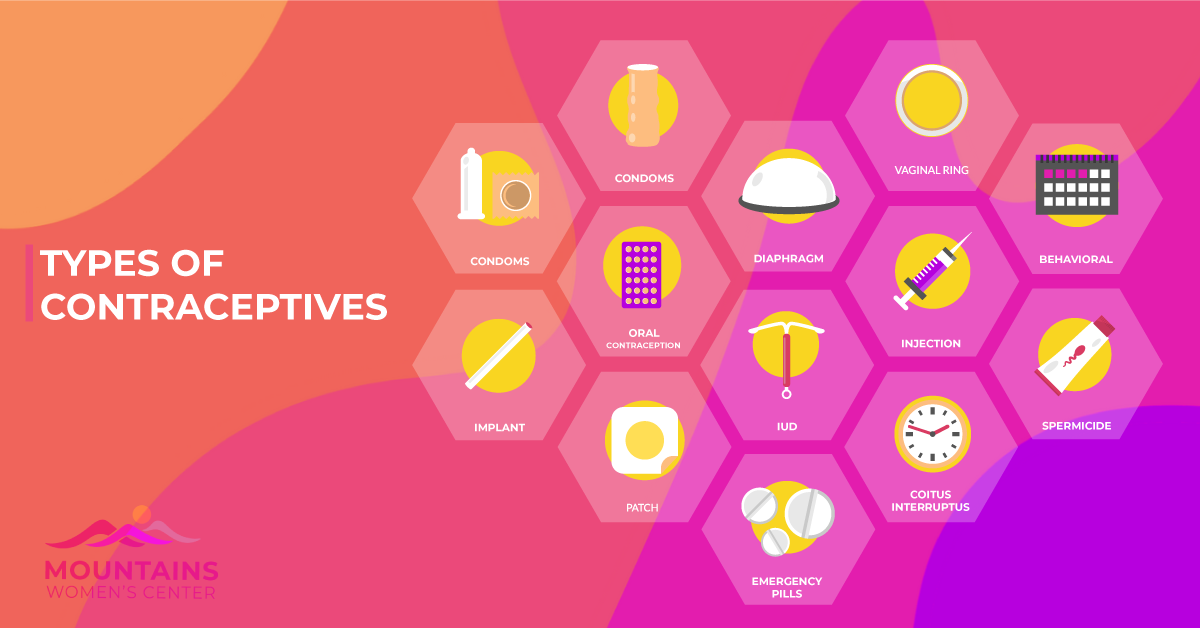Birth control is crucial for reproductive health because it empowers individuals to make informed decisions about when they want to start a family. There is a wide range of birth control options available, including pills, hormonal methods, barrier methods, IUDs, sterilization, behavioral methods, and emergency contraceptives.
Introduction to Birth Control
What is Birth Control?
Birth control refers to various methods and techniques used to prevent pregnancy. It can include hormonal contraceptives, barrier methods, intrauterine devices (IUDs), sterilization, behavioral methods, and emergency contraceptives.
Why is Birth Control Important?
Birth control is important for several reasons. Firstly, it allows individuals to plan and space their pregnancies, ensuring they have the resources and support needed to raise a child. Secondly, birth control can help regulate menstrual cycles, reduce menstrual pain, and manage hormonal imbalances. It also decreases the risk of unintended pregnancies and the need for abortion. Lastly, birth control empowers individuals to make decisions about their reproductive health, enhancing their overall well-being.
Types of Birth Control Methods
Hormonal Birth Control
Hormonal birth control methods, such as birth control pills, patches, injections, and implants, work by altering hormone levels in the body to prevent pregnancy. These methods primarily involve the use of synthetic progesterone and sometimes estrogen to suppress ovulation, thin the uterine lining, and thicken cervical mucus to prevent sperm from reaching the egg.
Barrier Methods
Barrier methods physically prevent sperm from reaching the egg. These include male and female condoms, diaphragms, cervical caps, and contraceptive sponges. Barrier methods are easily accessible and provide protection against sexually transmitted infections (STIs) along with pregnancy prevention.
Intrauterine Devices (IUDs)
IUDs, also known as intrauterine devices, are small T-shaped devices that are placed in the uterus by a reproductive healthcare specialist. There are two types: hormonal and non-hormonal. Hormonal IUDs release progestin, which thickens cervical mucus and inhibits sperm motility. Non-hormonal IUDs are made of copper, which creates an unfavorable environment for sperm.
Sterilization
Sterilization is a permanent birth control method that involves surgical procedures to either block or remove the fallopian tubes in women or the vas deferens in men. These procedures make it impossible for sperm to reach the egg, thus preventing pregnancy. Sterilization is considered a permanent contraceptive option and should only be pursued if an individual is certain about not wanting any or any additional children.
Behavioral Methods
Behavioral methods, also known as fertility awareness-based methods, rely on tracking menstrual cycles, monitoring cervical mucus changes, and basal body temperature to determine fertile and infertile periods. Although these methods can be effective when used correctly, they require consistent tracking and are generally considered to be less reliable than other forms of birth control.
Emergency Contraceptives
Emergency contraceptives, commonly referred to as “morning-after pills,” are used to prevent pregnancy after unprotected sex or contraceptive failure. These pills contain high doses of hormones that prevent ovulation or implantation of a fertilized egg. It is important to note that emergency contraceptives should not be used as a regular form of birth control.
Birth Control Pills
What are Birth Control Pills?
Birth control pills, often referred to as “the pill,” are oral contraceptives that contain synthetic hormones to prevent pregnancy. These hormones are either a combination of estrogen and progestin (combination pill) or progestin-only (mini-pill).
Effectiveness of Birth Control Pills
Birth control pills are highly effective when used correctly and consistently. The combination pill has an effectiveness rate of over 99%, while the mini-pill has a slightly lower rate of around 95-99%. However, the effectiveness of birth control pills can vary depending on individual compliance and the presence of other medications or health conditions.
Types of Birth Control Pills
There are several types of birth control pills available, including monophasic, multiphasic, extended-cycle, and progestin-only pills. Monophasic pills contain equal hormone levels throughout the pill pack, while multiphasic pills have varying hormone levels to mimic the natural menstrual cycle. Extended-cycle pills allow individuals to have fewer periods, while progestin-only pills are suitable for individuals who cannot take estrogen due to medical reasons.
Emergency Contraceptive Pills
Emergency contraceptive pills, commonly known as “morning-after pills,” are a form of birth control pill that can be taken after unprotected sex or contraceptive failure to prevent pregnancy. These pills contain high doses of hormones that work by preventing ovulation or the implantation of a fertilized egg.
Where to Obtain Birth Control Pills
Birth control pills are available with a prescription from a medical specialist, such as an OB/GYN. They can be obtained from pharmacies, clinics, or through online platforms. It is important to consult a healthcare professional to determine the most suitable pill and dosage based on an individual’s medical history and reproductive goals.
Cost of Birth Control Pills
The cost of birth control pills can vary depending on factors such as insurance coverage, generic versus brand-name options, and the healthcare specialist’s fees. Many insurance plans cover the cost of birth control pills, but it is recommended to check with the provider and understand any out-of-pocket expenses.
Taking Birth Control Pills
Birth control pills are typically taken once daily at the same time each day. The pill pack is usually designed to mimic a 28-day menstrual cycle, with 21 active pills containing hormones and seven placebo pills. It is important to follow the prescribed regimen and take the pill consistently to maximize its effectiveness.
Managing Missed Pills
If a birth control pill is missed, the effectiveness may be compromised. The specific instructions on managing missed pills can vary depending on the type of pill and the number of pills missed. Generally, it is recommended to take the missed pill as soon as possible and consult a gynecologist or read the package instructions for further guidance.
Side Effects of Birth Control Pills
While birth control pills are generally safe, they may cause side effects in some individuals. Common side effects include nausea, breast tenderness, headache, mood changes, and irregular bleeding. These side effects often subside within a few months. If severe or persistent side effects occur, it is essential to consult a gynecologist.
Eligibility to Take Birth Control Pills
Most individuals who do not have contraindications can safely take birth control pills. However, certain medical conditions, such as high blood pressure, history of blood clots, liver disease, and certain types of cancer, may make birth control pills unsuitable. It is important to disclose medical history to the healthcare specialist or gynecologist to determine eligibility.
Considerations while taking Birth Control Pills
While birth control pills are effective at preventing pregnancy, they do not protect against sexually transmitted infections (STIs). Therefore, it is important to use additional barrier methods, such as condoms, to reduce the risk of STIs. Additionally, certain medications, such as antibiotics and anticonvulsants, may interact with birth control pills and reduce their effectiveness. Consulting a healthcare specialist is crucial when considering other medications.
Other Birth Control Methods
Condoms
Condoms are one of the most widely used forms of birth control. They are made of latex or non-latex materials and are worn over the penis or inserted into the vagina. Condoms provide a physical barrier that prevents sperm from reaching the egg. They are also effective at preventing sexually transmitted infections.
Diaphragms
A diaphragm is a shallow, dome-shaped device made of latex or silicone that is inserted into the vagina to cover the cervix. It acts as a barrier, preventing sperm from entering the uterus and reaching the egg. Diaphragms should be used with spermicides for optimal effectiveness.
Cervical Caps
Similar to diaphragms, cervical caps are small, soft cups made of silicone that are inserted into the vagina and cover the cervix. Cervical caps are smaller than diaphragms and must be fitted by a gynecologist. They should be used with spermicides and offer similar effectiveness in preventing pregnancy.
Vaginal Rings
Vaginal rings are flexible, hormone-releasing devices that are inserted into the vagina and left in place for three weeks. During this time, the ring releases hormones that prevent ovulation and thicken cervical mucus to prevent sperm from reaching the egg. Vaginal rings require a prescription and provide highly effective contraception.
Spermicides
Spermicides are substances that immobilize or kill sperm. They come in various forms, including creams, gels, foams, suppositories, and films, and are inserted into the vagina before intercourse. Used alone, spermicides are less effective than other birth control methods but can be combined with barrier methods for enhanced efficacy.
Fertility Awareness Methods
Fertility awareness-based methods involve tracking changes in cervical mucus and basal body temperature to identify fertile and infertile days. By abstaining from intercourse or using barrier methods during fertile periods, pregnancy can be prevented. It is important to receive proper education and guidance to effectively use fertility awareness-based methods.
Withdrawal Method
Also known as “pulling out,” the withdrawal method involves the male partner withdrawing the penis from the vagina before ejaculation. This method is highly unreliable as pre-ejaculate can contain sperm and it requires strict self-control. It should not be relied upon as the sole form of birth control.
Outercourse and Abstinence
Outercourse refers to sexual activities that do not involve vaginal penetration. This includes activities such as kissing, touching, and mutual masturbation. Abstinence, on the other hand, involves refraining from any sexual activity. While both methods are highly effective in preventing pregnancy, they rely on personal choice.
Breastfeeding as Birth Control
Breastfeeding can serve as a natural method of birth control during the initial six months after giving birth. Referred to as the lactational amenorrhea method (LAM), exclusive breastfeeding has the potential to inhibit ovulation and prevent pregnancy. However, it is crucial to seek guidance from a medical professional and adhere to specific guidelines to ensure maximum efficacy.
Sterilization Procedures
Sterilization procedures, such as tubal ligation in women or vasectomy in men, provide a permanent form of birth control. These procedures involve blocking or removing the fallopian tubes or vas deferens, respectively, to prevent sperm from reaching the egg. Sterilization should only be considered if an individual is certain about not wanting any or any additional children.
Comparing Different Birth Control Options
Factors to Consider when Choosing a Birth Control Method
Choosing the most appropriate birth control method relies on various factors like personal preferences, medical background, effectiveness, convenience, side effects, and cost. It is important to discuss these factors with a gynecologist or a healthcare professional specializing in women’s health to determine the best option for each individual.
Each birth control method has its own effectiveness rate, which can vary from 99% for methods like sterilization, hormonal IUDs, and the pill to lower rates for less reliable methods like fertility awareness-based methods and the withdrawal method. Understanding the effectiveness of each method is important in making an informed decision.
Other Benefits and Considerations
Besides preventing pregnancy, some birth control methods offer additional benefits. For example, hormonal methods like birth control pills can regulate menstrual cycles and reduce acne. Barrier methods like condoms provide protection against sexually transmitted infections. It is important to consider these factors when choosing a birth control method.
Summary of Birth Control Options
Birth control provides individuals with the autonomy to make informed decisions about their reproductive health. There are numerous birth control methods, including hormonal options like birth control pills, barrier methods, IUDs, sterilization, behavioral methods, and emergency contraceptives. Each method has its own benefits, effectiveness, and considerations, so it is important to choose the most suitable option based on individual needs.
Importance of Choosing the Right Method
Choosing the right birth control method is crucial for effective contraception and overall well-being. Factors such as individual preferences, medical history, effectiveness, convenience, side effects, and cost should be considered. It is recommended to consult a medical professional to discuss options and determine the most suitable method.
Importance of Discussing Options with a Gynecologist
Discussing birth control options with a gynecologist is essential to receive proper guidance and information. Gynecologists can evaluate an individual’s medical history, provide accurate information about different methods, and help determine the most suitable option. Regular check-ups are also important to monitor and adjust the chosen birth control method, if necessary.

Dr. Amber Glenn is an exceptionally skilled and compassionate physician dedicated to serving the community of Smyrna, Georgia and surrounding areas. With her extensive knowledge and expertise in Obstetrics & Gynecology, she has become a trusted name in the field. Amber’s commitment to delivering high-quality care is evident through her more than 7 years of experience, which has allowed her to develop a deep understanding of the unique needs and concerns of her patients.

